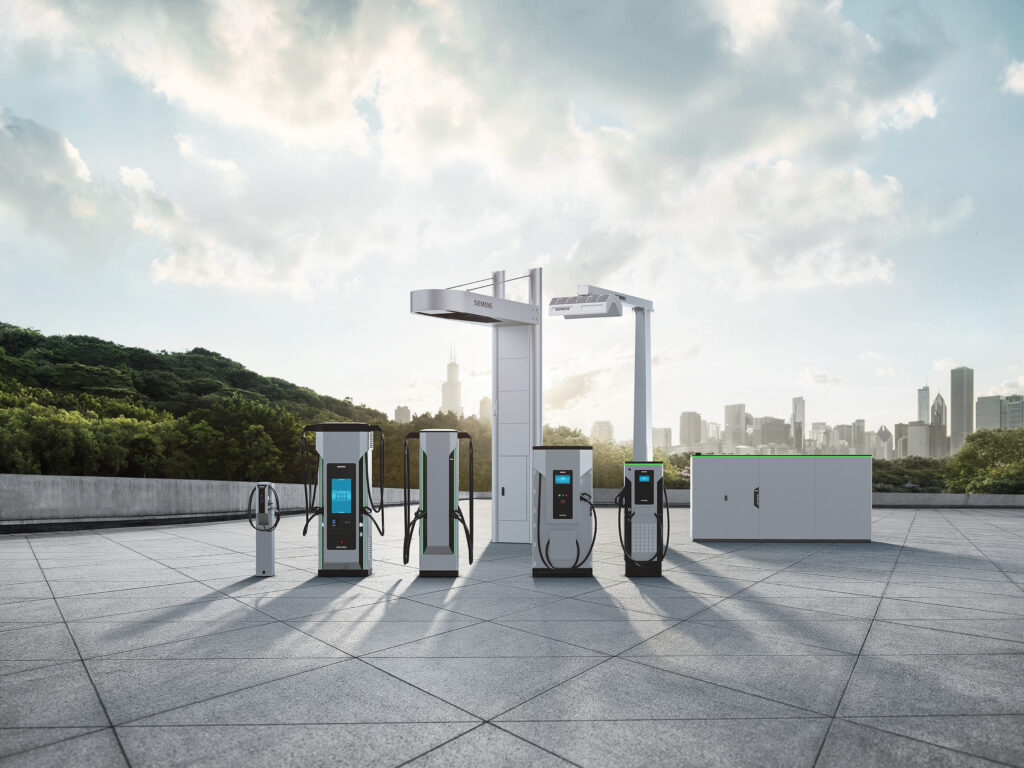Siemens expands EV charging portfolio with launch of 400kW SICHARGE D for IEC market
Ideally suited to a range of vehicles and use cases, including highway charging
Siemens Smart Infrastructure has introduced an additional variant of its SICHARGE D electric vehicle (EV) fast charger, with a maximum output of 400 kW for IEC markets.
Designed for future proof electric vehicle (EV) charging, SICHARGE D fulfills the relevant standards, protocols, and norms and can adapt to current and future charging needs. What’s more, with the SICHARGE D dispenser, charging up to four vehicles at the same time is possible with only one grid connection, optimizing charging times and delivering financial and space savings for Charge Point Operators (CPOs).
Markus Mildner, CEO eMobility, Siemens Smart Infrastructure said: “The broad adoption of eMobility is a necessity for a more sustainable future. Reduced charging times for both eCars and eTrucks, especially en-route, will play a pivotal role in increasing convenience and acceptance of this type of transportation. SICHARGE D is a great milestone in achieving this.”
Designed with flexibility in mind, SICHARGE D is ideally suited for different use cases like destination charging, public fast-charging or highway charging and can offer continuous, stable power output of 400 kW at 40°C ambient temperature.
It features a multi-language touchscreen with an intuitive user interface and cable management at both the charger and the dispenser for easy cable handling, making charging as convenient as possible for EV drivers.
CPOs benefit from flexibility as the touch display also offers different advertising options, and a variety of payment terminals can be integrated, matching the CPO payment partner.
Tailored services and continuous support are also available throughout the entire product life cycle – from initial installation to digital and remote services and on-site support.
Road transport is the biggest emitter in the EU’s transport sector and accounts for nearly three-quarters of transport-related greenhouse gas emissions1. The European Union (EU), as part of the Fit for 55 package, has adopted new rules regulating CO2 emissions from these vehicles. The proposed regulation increases the CO2 emission reduction targets for 2030 and sets a new target of 100% for 2035, something which a robust EV charging network will be critical in enabling.
Category: Electric Vehicles, Engines & Drivetrains, Equipment, Featured, Fuel & Oil, General Update, Green, News, Safety, Tech Talk, Vehicles











